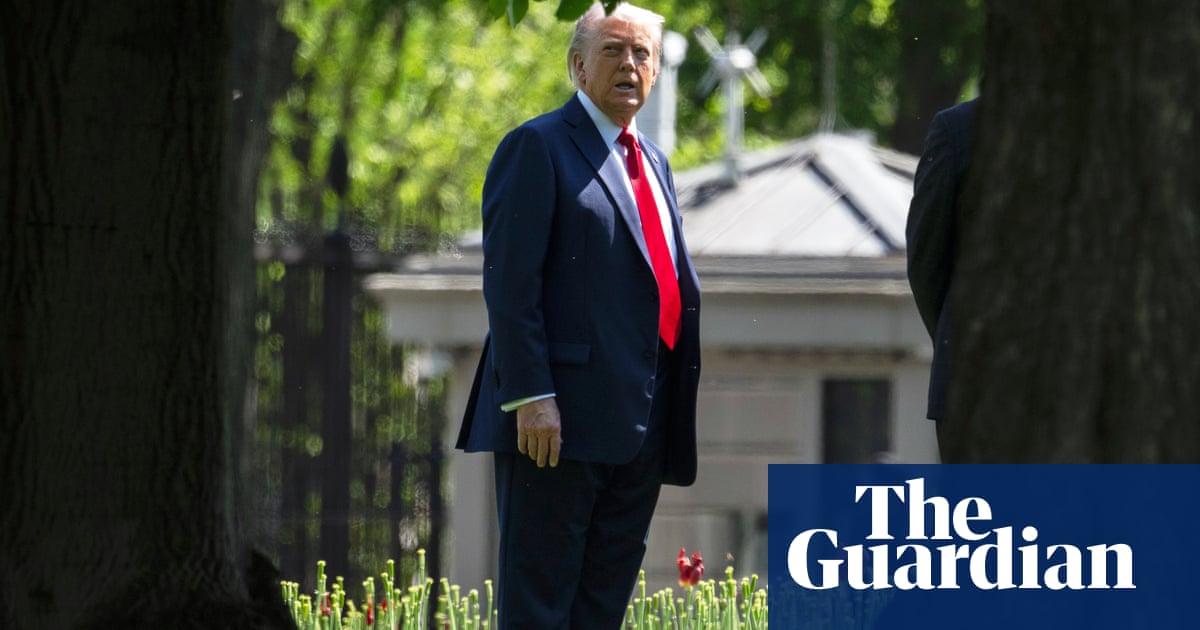Donald Trumphas signed executive orders targetingUS universitiesas his administration seeks to reshape higher education institutions and crack down on diversity and inclusion efforts.
The actions address foreign gifts to universities as well as college accreditation, which the president has referred to as his “secret weapon” to upendUS universities.
Trump has also taken aim at the Ukrainian president,Volodymyr Zelenskyy, while giving the clearest hint yet that the US would be willing to formally recognise Russia’s seizure of Crimea as part of any peace deal to end the war in Ukraine.
The Trump administration continued its all-out assault on US universities on Wednesday as the president signed executive orders cracking down on college accreditation and foreign gifts.
While reading the orders to Donald Trump, White House staff secretary Will Scharf said the third-party groups that accredited universities had relied on “woke ideology” rather than merit.
“We should be looking at those who have real merit to get in, and we have to look harder at those universities that aren’t enforcing that,”Linda McMahon, the education secretary, added during the signing in the Oval Office.
Read the full story
Donald Trump has accusedVolodymyr Zelenskyyof endangering what he claimed was an imminent peace deal to end the war in Ukraine, hinting that the US would be willing to formally recognise Russia’s seizure of Crimea as part of any agreement.
“Nobody is asking Zelenskyy to recognize Crimea as Russian Territory,” Trump wrote, implying that the US was willing to do so. “If he wants Crimea, why didn’t they fight for it eleven years ago when it was handed over to Russia without a shot being fired?”
Read the full story
A dozen states have sued the Trump administration to stop its tariff policy, saying it is unlawful and has brought chaos to the American economy.
Arizona’s attorney general, Kris Mayes, called Trump’s tariff scheme “insane” and said it was “not only economically reckless – it is illegal”.
Read the full story
The contours of the White House’s “final” peace proposal to halt the Russian invasion ofUkrainehave come into focus with proposals to freeze the frontlines in exchange for terms that critics have termed a surrender to Russian interests in the three-year-old conflict.
Read the full story
Stock markets have risen around the world after Donald Trump said his tariffs on China would come down “substantially” and he had “no intention” of firing the chair of the US central bank, Jay Powell.
Read the full story
TheSenate’s second-highest rankingDemocrat, Dick Durbin, announced he will not seek re-election in 2026, bringing an end to a Senate career that spans nearly three decades. In a video statement posted online, Durbin said: “I truly love being a United States senator, but in my heart I know it’s time to pass the torch.”
Read the full story
As more develops about the US defense secretary,Pete Hegseth, and his repeated disclosures of sensitive military intelligence in unsecured Signal group chats, there are growing concerns his behavior has weakened the Pentagon in the eyes of its foreign adversaries and made him and his entourage a top espionage target.
Read the full story
The federal court that has found itself in a pitched battle with the executive branch over the summary removal of SalvadorianKilmar Ábrego Garcíadespite a previous order against deportation has now accused the Trump administration of “bad faith” in the case.
Read the full story
TheTrump administrationhas shunted one of the US federal government’s top scientific agencies onto a “non-science trajectory” that threatens to derail decades of research and leave the US with “air that’s not breathable and water that’s not drinkable”, say workers.
Read the full story
Pennsylvania governor Josh Shapiro described shattered glass, melted furniture and burnt prayer books afterarson at his residence weeks ago.
Norway has launched a new scheme to lure top international researchersamid growingpressure on academic freedom in the US under the Trump administration.
Catching up?Here’s what happened on22 April 2025.
